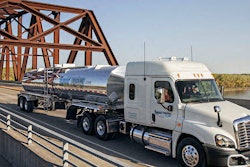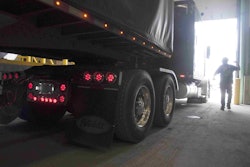“The poll says it all,” noted regular OverdriveOnline.com commenter RC in his reactions to early results from the poll we’ve had open since last week on the issue of waits at shipper/receiver facilities post-ELD mandate. As he suggests, echoed by another commenter’s “same crap different day” sentiment on the issue, most readers felt that the load/unload locations they visit had either seen no change (44 percent) or actually gotten a little (18 percent) or a lot (20 percent) worse on detention since late December 2017 when the electronic logging device mandate first came into play. Results below are as of midday March 6 and are simplified to an extent, with yes and no responses combined for ease of reading. If you haven’t weighed in on the poll yet, or if you want to see more refined results, follow this link.
Have detention times improved for you since the ELD mandate?
Leading into the mandate, of course, shipper-receiver efficiency and hopes for improvement there were chief among the positive predicted results of mandated ELDs, which it was said would foreground hours of service limitations for truckers all across the supply chain. And indeed, and with boosted economic activity, trailer purchases boomed in the aftermath. Plenty anecdotes suggest more and more carriers and shippers working toward drop-hook-type situations where possible, which would seem to improve the load-unload experience if such trends continue.

I’ve also heard some reports of increasing success at using the electronically monitored hours of service cudgel as a means of putting a little pep in the step of shippers. Though he’s still running paper in an ELD-exempt 1999 model truck, independent owner-operator Howard Salmon suggested to me late last year that a little bit of emphasis on hours has seemed to be more effective on-site, at least at some locations.
The day before we spoke, he’d been held up waiting to get loaded a few hours. Those hours were well on their way to throwing “my easy trip with a same-day delivery out the window because you guys are holding me up” — what exactly he told the shipper. “They snapped to it and got me right out of there.”
Others waiting in line might not have fared so well, he speculates, as he’s also quick to involve his principal broker in such issues — another voice on the line urging speed can help.
“I always let the brokers know when the guys are holding me up,” he adds.
His experience is not reflected by that of the majority of owner-operators, though, judging by poll results.
As RC put it in his commentary, summing up the majority: “Nothing changed, except now the truck has a timer in it that has put more unneeded pressure on the operator. Everything that they tried to sell ELDs on — safety, higher rates, make the shippers and receivers more prompt — none has happened,” though rates did rise in the immediate aftermath for a time. “So here we are on the short end yet again.”
A commenter posting only as “Bill” agreed, adding “there is good and bad about ELDs, but overall I feel less safe on America’s highways after 31 years OTR. I’m taking early retirement in 6 months at 62 years of age.”
Other commentary:
Henry:What I find is [shippers] deal with the daycabs first, as they are hourly, and the sleeper trucks now wait longer.
Bruce W. Mattingly: A lot of them will make you wait an hour and forty minutes and then load you in twenty minutes right before detention starts. Even if they go over two hours, the detention doesn’t pay enough to be worthwhile.
For owner-operators giving away load time for free on the front end (two hours has historically been the most common, though there’s evidence that’s been giving way to one in many operations), it’s imperative to boost detention-pay rates where possible to help push prompt loading, noted Lee and Lisa Schmitt: “Anybody out there who is accepting contracts with three or more free hours on both ends and less than $75 an hour to boot are getting what they deserve, a big one up the” you-know-what.
Eric: I think some shippers and brokers don’t care. The biggest offenders are still food places, followed by any place that outsources dock work. Walmart has actually tried to improve, but others, if you’re not on contract to them, still waste a lot of time. I lost half a day so far this week. My company takes note of this and won’t repeat places that do it more than twice.
Rob: Nothing changes. Just more expense for the driver and trying to run the small guy out of business.










